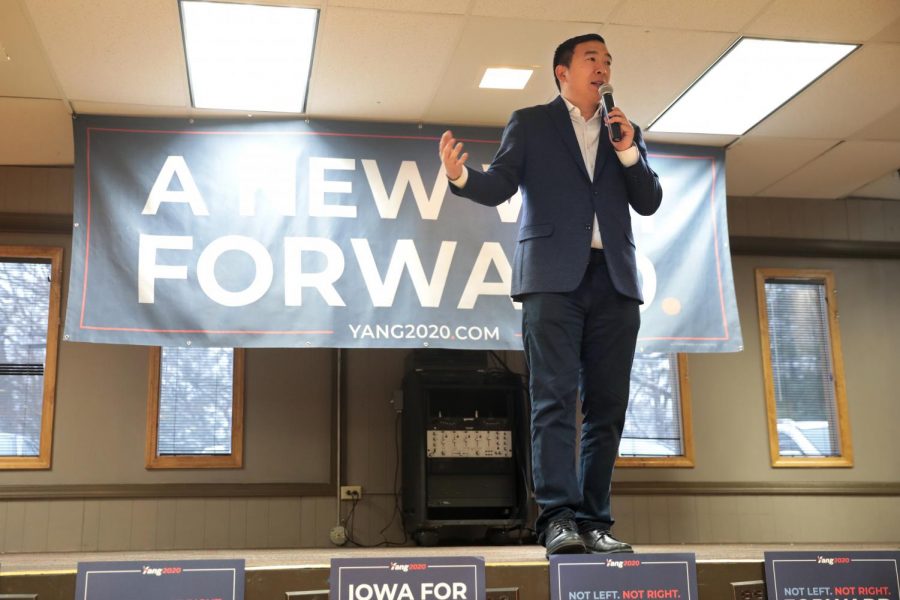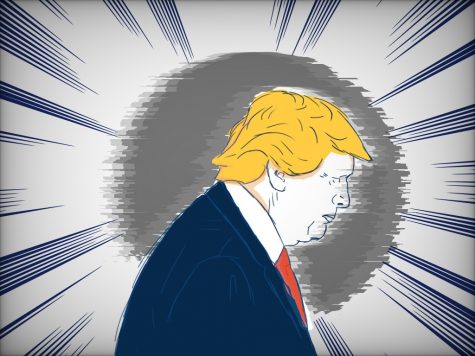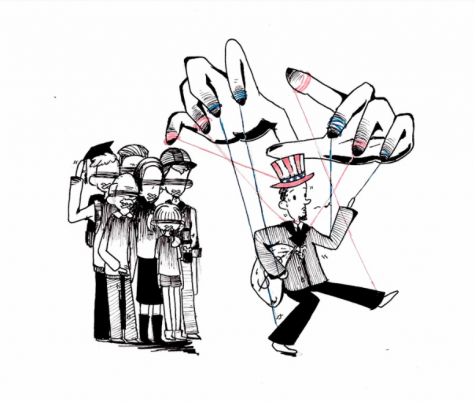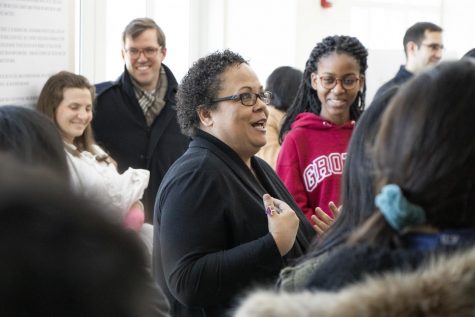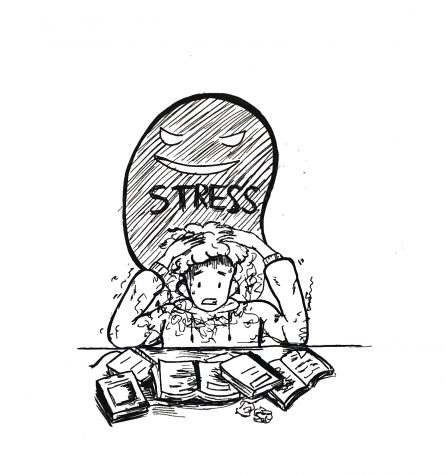“Freedom Dividend:” Not Feasible in the Land of the Free
Andrew Yang speaking at a rally in Iowa.
As we advance into a new era of American politics, the prospect of moving toward a socialist or social-democratic style of government is becoming more mainstream. With candidates like Elizabeth Warren, Bernie Sanders, and Andrew Yang running in the upcoming presidential election, this prospect has begun to sink in as a potential future for our country. The Gallup Survey of 1,024 citizens found that a substantial 43 percent of Americans believe a larger shift towards socialism is beneficial to the country, an 18 percent rise from a similar poll conducted in 1942.
Currently at the forefront of socialist controversy is the proposal, popularized by Yang, of a new kind of social security: Universal Basic Income (UBI). However, while UBI and other socialistic tenets have seen a recent rise in popularity, none would be able to truly flourish in a capitalistic society like America. UBI would only be feasible only in an absolute socialist society, which would exercise total social ownership over the means of production.
The idea that Andrew Yang has brought to the table, dubbed the Freedom Dividend, proposes that $1,000 a month would be given to all Americans. It would be funded by a Value Added Tax, a tax on the transactions of trillion-dollar tech companies. Besides the obvious benefit of every American receiving $1,000 dollars with no tax per month, the outline of UBI predicts success in a number of other areas, including mollification of the effects of poverty, a basic safety net for the unemployed, enlargement of the middle class, elimination of workplace bureaucracy, the vesting of a bargaining power in the hands of the workers, and encouragement of local entrepreneurship.
However, while UBI appears to be ideal in theory, its implementation is problematic. Finland conducted a trial of UBI in 2017 of 2,000 unemployed citizens in which $600 per month was doled out to Finnish citizens. By the end of the experiment, there was no statistical improvement in employment rates, though some psychological gains were noted, including a 37 percent reduction in depression levels. All in all, the trial did not accomplish its goals of increasing employment rates and providing stability for recently-employed citizens.
The experiment failed because the structure of the trial’s basic income program was too conservative to incentivize citizens to seek work. Two thousand unemployed Finns were randomly chosen to receive a monthly income of $635, replacing Finland’s existing unemployment benefits. Because this UBI was not reduced even if the Finns found work, it provided little motive for Finns to seek employment. Given America’s similar unemployment program (up to $450 weekly to unemployed citizens, a significantly larger benefit than UBI serves), it would be impossible to implement true UBI in a capitalistic society like America.
In addition, because of the inherently universal nature of UBI, attention would be diverted from those in need of the most economic attention. At a Democratic debate on October 15th last year, Yang claimed that his policy would build a “trickle-up economy.” This theory suggests that UBI, combined with lowered taxes for the lower and middle classes, would allow those groups to spend more. The middle class would expand through UBI and, through increased spending, contribute to overall economic growth.
However, class divisions will remain fully intact under UBI, since each would be treated with identical attention from the government. While the lower classes may receive more money, UBI would simultaneously make the rich richer. UBI would therefore generate almost no forward motion toward narrowing the lower class.
With frighteningly low wages, a shortage of affordable housing, and a concentration of work opportunities in small regions of the country, our nation is in no place to take a major leap toward socialism to resolve the issue that our current capitalistic system has created. It is a gross misconception that America’s only available solutions require radical systematic change.
Instead of shifting the entire system of American government to incorporate UBI, we must transfer our focus to other solutions to the economic issues above. For example, we must consider options that motivate all unemployed citizens to work. Such prospects include raising the minimum wage (ranging from $7.25 to $15 an hour), and increasing the Earned Income Tax Credit, a refundable tax credit for moderate- to low-income workers.
UBI does have some potential as a strategy to lower unemployment and poverty rates. However, it could only have potential in a completely socialist society. Meanwhile, in the inherently capitalistic society of America, a policy like UBI is doomed to fail.
Editor-in-Chief


